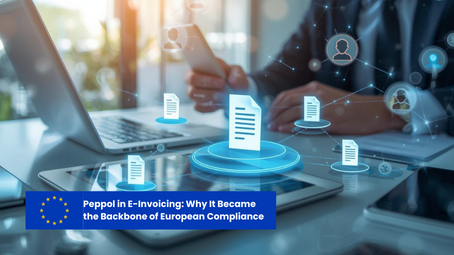How to Ensure Compliant E-Invoicing
- Melasoft

- Jan 12, 2021
- 3 min read
Updated: Jan 31
Why is e-invoicing compliance important?
For our clients, e-invoicing compliance is a ‘necessary evil’, as they need to be able to handle VAT and other taxes correctly in order to not incur fines or other penalties, and, of course, to be able to make VAT deductions correctly.
At Melasoft, we are passionate about simplifying operations for our clients. We can take on the complexity entailed by compliance in the e-invoice processing so that our clients can focus on their core business. The aim is to relieve them of this headache.
What a company needs to do before getting started
Very often, a company must meet certain requirements before it can get started with electronic invoicing. These requirements may entail the company being obligated to report switching from paper invoices to electronic invoices in order to receive approval from the tax authority, or the service provider having to report that it will start processing invoices electronically on behalf of the client.
In some countries, the supplier must get the invoice recipient’s consent in order to switch from paper invoicing to digital invoicing. This is primarily because, although e-invoicing has been available on the market for a while, in many countries its use is still at an embryonic stage. Many companies do not have the capacity to handle electronic documents. They still work only with paper.
“In some cases, the tax and accounting legislation may not be up to speed either. For this reason, the first question should always be whether or not an electronic invoice constitutes a valid document for tax purposes.”
Requirements that must be fulfilled
“The next step is the entire e-invoicing process, where the company, for example, must look at format requirements and requirements connected with document authenticity and integrity. In some countries, there is only one way to fulfil these requirements, while other countries offer a greater range of options. There may also be discrepancies within a given country – so-called ‘invoicing regimes’.
“The content of the invoice is also an important consideration. This includes the minimum content requirements as stipulated by the regulator in order for the invoice to be valid for tax purposes.
“As concerns the issuance, transmission and acceptance process, there is a significant difference between post-audit (most EU Member States) and clearance countries (for example, Turkey and LATAM). While in the post-audit countries the requirements are mostly to be met by the supplier, in clearance countries both the supplier and the recipient are equally involved in the process of clearing the invoice with the tax authority.
“But it is easy to forget that even in the post-audit countries there are typically some requirements that are to be met by the recipient as well. For example, some countries may require the recipient to send a receipt or some other form of acknowledgement to the issuer indicating that they have received the invoice and that it is correct, or that they have received the invoice but wish to make changes to it. The authenticity and integrity requirements apply to the recipients as well.”
What to consider when archiving
“Last but not least, it is important to look at archiving requirements. How will the e-invoices be archived? Which documents must be stored and for how long? Are there any auditability requirements? In some countries, for example, there may be a requirement to archive locally. While other countries may allow archiving abroad, the tax subject must obtain consent from the local tax authorities or notify them that the company will be storing their e-invoices somewhere else.”
Responsibility lies with the client
“There is often a misconception about the division of responsibility between the client and the service provider. When a tax subject outsources parts of its operations to a third party – to an e-invoicing service provider, for instance – this does not result in a shift of liability towards the tax authorities. The role of the service provider is to provide the tax subject with a solution, which the tax subject can assess and decide whether it reasonably fulfils the tax and accounting compliance obligations.
“If there is a disagreement between the client and the service provider over the interpretation or implementation of certain regulations, the opinion of the client should always be given more weight. It is the company that incurs any additional taxes or fines, not the service provider.
Melasoft Smart Documents Solutions is always with you.





Comments